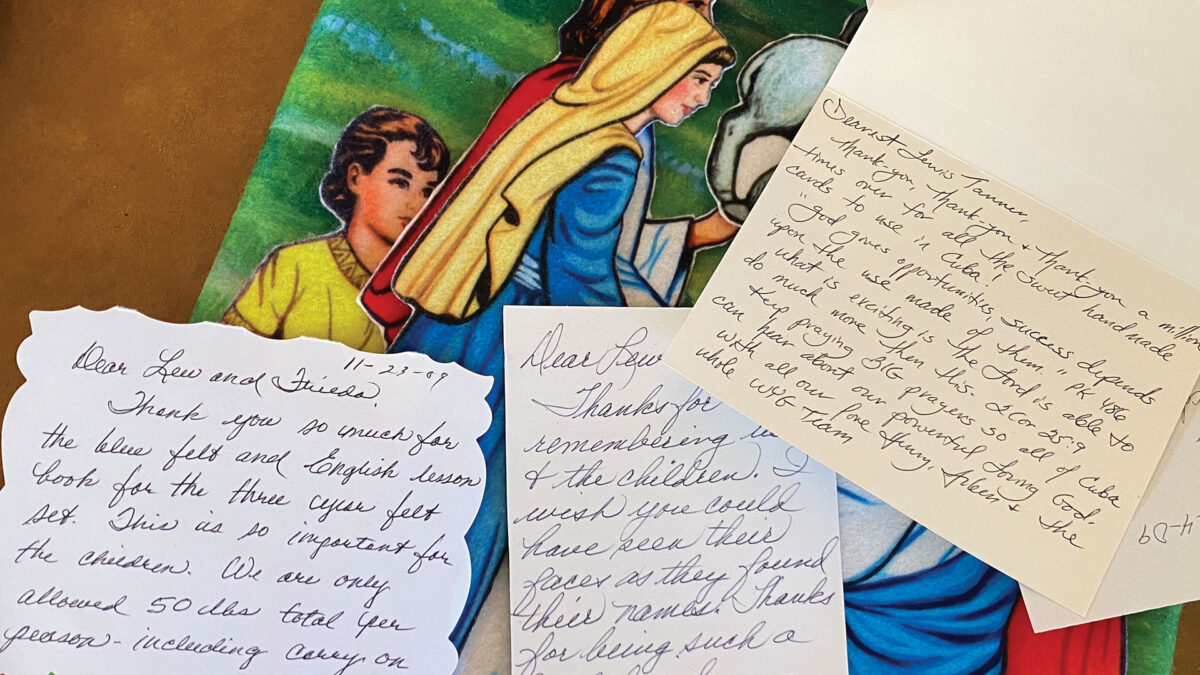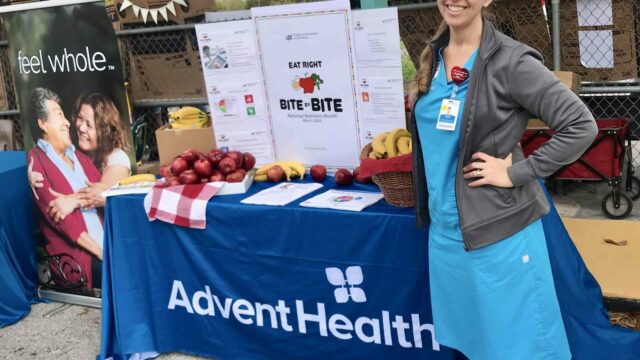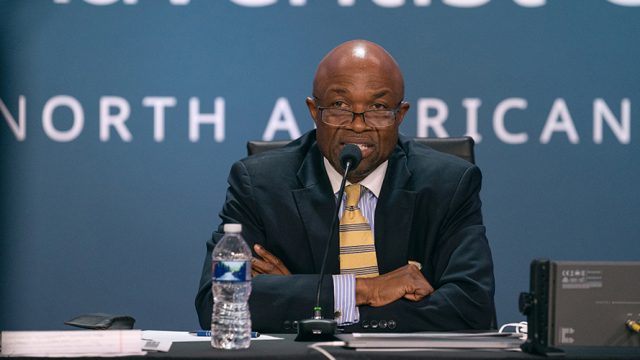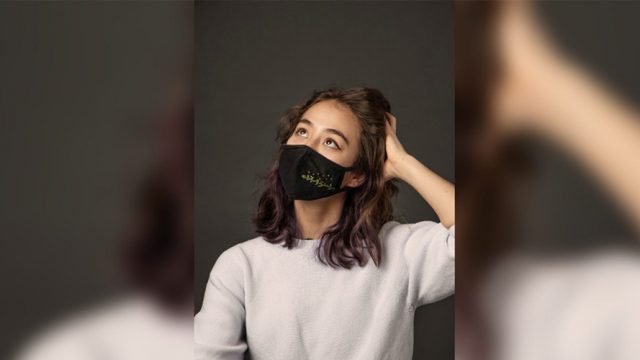It was a rite of passage for the boys wanting to date the Tanner daughters to sit at the dining room table and cut and color felts.

This sounds a bit crazy, but Grandma Frieda is known as someone who gives everything away, and also as a person who keeps everything!
Frieda Tanner was born 102 years ago in Greeley, Colorado. Her husband, Lew, is only 96.
“One of my high school teachers was a Seventh-day Adventist,” she remembers. “I actually lived with them for a while and cleaned house for them. They were very kind and deepened my understanding of God and introduced me to Adventism. My parents didn’t believe that it was necessary for girls to go to school past eighth grade, so I had to plead to go to high school. After graduation the Adventist teacher convinced them it would be OK for me to go to Madison College in Tennessee to take nursing. I was baptized the summer after high school, the only one of my Lutheran family to become a Seventh-day Adventist.”
After graduating with a bachelor’s degree, a rarity at the time, Frieda moved to Lynwood, California, to help her widowed sister care for her children.
* * *
In 1908 Grandma Frieda’s parents had immigrated from Russia to Colorado, where they joined other German Russians as farmers. Frieda remembers all the hard work. “I spent a lot of time in the summer thinning beets and getting sunburned. I had 11 brothers and sisters. Three died as children, but the rest grew up and spread out to other states.” The family has maintained a close family connection, and cousins have gathered yearly for more than 30 years.
Grandma Frieda’s family blessed her with a deep love for children. With her own children she practiced acceptance and love. As the children grew, she and Grandpa modeled a supportive and noncritical atmosphere about religion and politics. Central, always, was loving, “as God loves.”
“We can talk all kinds of theology,” Grandma says, “but if we do not have a central core of love, it’s just empty words.”
When Grandma Frieda talks about her husband, Lew, she smiles at him or reaches out and touches his hand. “When I met Lew, I really liked him. The first time he kissed me, he asked if it was nice, and I told him it would have been better if he didn’t smoke,” she laughs. That was the end of the cigarettes and the beginning of a 68-year marriage.
Lew and Frieda have two daughters, Carol and Jeanne. “And a houseful of children and grandchildren,” says Grandpa Lew.
* * *
In the 1950s, while volunteering in the children’s divisions at the White Memorial church in Los Angeles, Frieda discovered Bible Story felts—plain drawings of Bible characters, animals, and other nature subjects printed on large sheets of felt. Every drawing needed to be colored and cut out of the sheet, then assembled into sets to tell Bible stories. Frieda immediately saw how valuable these felts would be to people who were telling Bible stories to children around the world. She decided to do all she could to get the felts prepared and distributed.
“Kids have always loved them,” she proclaims. “They’re fascinated with the felts. They love how they feel, how they look, how they stick on the board. They play with them, put them up on felt boards, and tell each other the Bible stories. This is how children can learn about Jesus.”
For years anyone coming through the door was handed a pile of felts, coloring pens, and a pair of scissors. Everyone became part of Frieda’s army of cutters and colorers. It was a rite of passage for the boys wanting to date the Tanner daughters to sit at the dining room table and cut and color felts.
“People around the world learned about us, and they would write and request material for the children,” Grandma Frieda tells the story. “Then we’d purchase the materials and get to work. We were self-supporting, dependent upon donations, eager to help children learn about Jesus.”
The work changed when someone began making full-colored felts. Then Frieda joined Faith Adventures, a group of Adventist stalwarts from the White Memorial church—evangelistic and tireless to the core—who began purchasing sets of brightly colored felts, packaging them, and sending them all over the world. Frieda’s family, and an even larger group of friends, were now spending hundreds of hours at the dining room table putting everything together, talking about the stories, about God, about love, about life.
“Our home was a safe place,” says daughter Jeanne. “My parents weren’t judgmental, just open and loving. They had a penchant for entertaining and made sure we had a full table for Sabbath dinners. That table was a safe place for open discussions, where everyone could share without fear. That’s where my folks taught us to listen and respect others; where we learned how to deal with the hard issues in life.”
* * *
Grandma Frieda’s Bible is always nearby, with The Desire of Ages right beside it. Both are well read. Open any page and you’ll see notes she’s written in the margins, places she’s underlined in red or green or blue, words that point to a Bible story she wants to share.
“It’s easy to use felts to show God’s love in the simple Bible stories, but it’s equally important to find God’s love in the really hard stories. The simple stories give you a basis for evaluating God’s love, a way to approach the world. But if you stop there, then when you hit a hard point in life, you’ll not have a solid way to investigate it. We’ve got to look deeply at the harder Bible stories, the violent tales, stories about women, even some of the sayings of Jesus that are hard to unpack. Understanding how God loves throughout all of Scripture will give us the skills to know how to respond to the tough challenges,” says Jeanne. “My parents gave me this foundation, for which I am grateful.”
Through the years thank-you letters and cards have come in from scores of countries. Most have said, “Thank you for remembering the children.” They’ve come from Cuba, Russia, Ukraine, India, from everywhere! Grandma Frieda kept every one of them, until she had boxes and boxes filled with “thank-you” cards.
“I’m an old lady now, but it’s still a thrilling thing to know that Jesus really loves us,” Grandma says as she sorts the cards. Then she smiles, remembering how much she has enjoyed giving things away.








